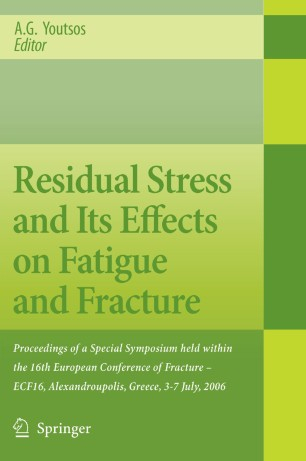
Residual Stress and Its Effects on Fatigue and Fracture
Publication year: 2006
ISBN: 978-1-4020-5329-0
Internet Resource: Please Login to download book
Simplified fracture mechanics based assessment methods are widely used by the industry to determine the structural integrity significance of postulated cracks, manufacturing flaws, service-induced cracking or suspected degradation of engineering components under normal and abnormal service loads. In many cases, welded joints are the regions most likely to contain original fabrication defects or cracks initiating and growing during service operation. Various procedures provide upper bound residual stress profiles for various classes of welded joints that can be used in fracture assessments, but these often give very conservative results. Recently, the option to use more realistic profiles has been adopted, but only where such profiles are based on finite element residual stress simulations supported by detailed residual stress measurements.
Subject: Chemistry and Materials Science, Uran, alloy, development, diffraction, fatigue, fracture mechanics, modeling, polymer simulation